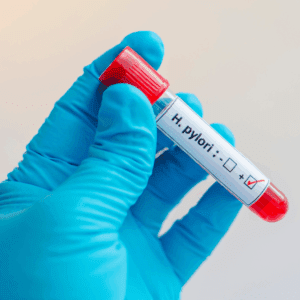Dr. Shria Kumar, from the University of Miami’s Sylvester Comprehensive Cancer Center, explains how patients and families can find affordable care and support when facing stomach cancer. She highlights practical resources, from federally qualified health centers and hospital assistance programs to patient navigators and nonprofit advocacy groups that help remove financial, language, and transportation barriers.
Related Resources
Transcript
Lisa Hatfield:
Dr. Kumar, your research shows that people with fewer financial resources or no insurance often get diagnosed with stomach cancer at a later stage, when it’s harder to treat. What resources can patients and families line up early to make sure they access care when it’s most effective?
Dr. Shria Kumar:
So this is absolutely one of the most urgent issues in cancer care. Persons with limited financial resources or no insurance are more likely to be diagnosed later when the cancer is harder to treat. I think the practical steps to take for someone in this position are to start with a federally qualified health center or a free clinic. These are hospital or community-based clinics that provide low or no-cost care. They have patient navigators who can help patients apply for assistance and refer them for appropriate testing and treatment.
Many hospitals also have financial assistance programs, and navigators who patients and families can speak with. These resources can help with a variety of things, scheduling appointments, applying for insurance or aid, finding transportation, lodging, making sure there’s appropriate language support. All of which are critical components of cancer care.
And again, here, I would really encourage patients to look into nonprofits and these patient advocacy programs, because they can really help you navigate the maze that is the overall cancer journey.
Lisa Hatfield:
And do you know if there’s any kind of site or resource where a patient can look up in their area where they might find a free clinic or one of those subsidized programs or funded programs?
Dr. Shria Kumar:
Absolutely. I think if you would just Google “free clinic” in whatever city you’re in, that would be one step, and then the other term is called “federally qualified health center.” So if you Googled “federally qualified health center” in your city, you should be able to find a list of the institutions or hospitals that qualify as such.
Lisa Hatfield:
Dr. Kumar, your work emphasizes teaching communities about stomach cancer prevention. How can patients not only advocate for themselves, but also raise awareness in their communities, especially in groups that face the highest risks?
Dr. Shria Kumar:
Absolutely. You know, we’ve spoken a lot now about patients communicating with their doctors, but I think an equally important avenue for community health is for people to spread the message within their own community. We certainly see this within communities and family members when we’ve gone out and done research studies focusing on H. pylori screening.
And what we found is that people are really interested in learning and sharing what they learn with their loved ones. There can sometimes be a little tentativeness about sharing, especially as, there’s somewhat of a stigma with a bacterium that can be transmitted. But I really encourage it. And it’s always heartening to me to see how engaged community members can really make the biggest differences.
I often see people in clinic who are encouraged to come due to a friend or a family member telling them about H. pylori or gastric cancer. And that is really important. Ultimately, the more we can get the message out via public health campaigns, formal office visits, and word of mouth, the more any community members and community will benefit.



